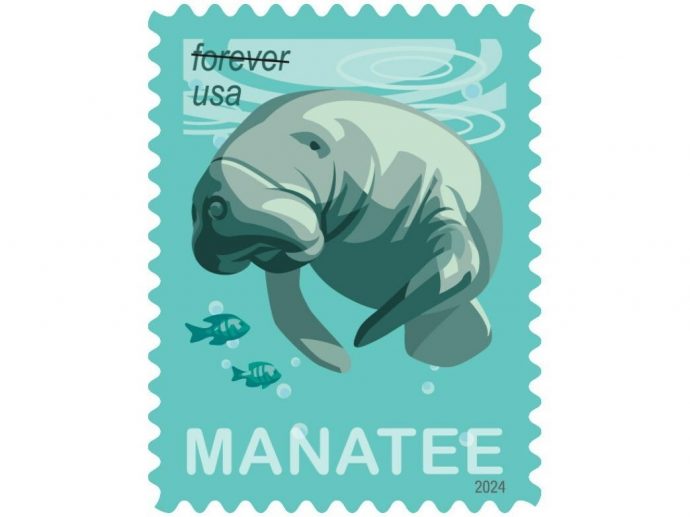Categories more
- Adventures (16)
- Arts / Collectables (15)
- Automotive (37)
- Aviation (11)
- Bath, Body, & Health (76)
- Children (6)
- Cigars / Spirits (32)
- Cuisine (16)
- Design/Architecture (21)
- Electronics (12)
- Entertainment (4)
- Event Planning (5)
- Fashion (44)
- Finance (9)
- Gifts / Misc (6)
- Home Decor (44)
- Jewelry (40)
- Pets (3)
- Philanthropy (1)
- Real Estate (14)
- Services (22)
- Sports / Golf (14)
- Vacation / Travel (60)
- Watches / Pens (14)
- Wines / Vines (24)
- Yachting / Boating (16)
Published
03/29/2024 by U.S. Postal ServiceIt's Manatee Appreciation Day! The U.S. Postal Service celebrated the occasion by dedicating its new Save Manatees stamp here today beside a clear, warm spring that the marine mammals frequent.
"Postage stamps are miniature works of art designed to reflect the American experience," said Lisa Bobb-Semple, Stamp Services director for USPS. "It is our hope that these stamps bring further awareness to the plight of this beautiful animal."
The manatee is a large, gray aquatic mammal with a wrinkled face and whiskered snout. It has a flat, paddle-shaped tail and two flippers with three or four nails on each one. Its closest land relative is the elephant.
It is considered one of Florida's keystone species, whose behavior can alert researchers to environmental and habitat changes that may otherwise go unnoticed in the state's waterways.
"I am honored to be here celebrating this magnificent new manatee stamp," said Patrick Rose, executive director of the Save the Manatee Club, which has worked for more than 40 years to support and advocate for the mammals. "This adorable stamp will increase awareness and hopefully encourage people to learn how they can help save manatees, too."
Within the United States, manatees are concentrated in Florida in the winter. In summer, they can be found as far west as Texas and as far north as Massachusetts, but summer sightings in the southern states are more common. They can be found in shallow, slow-moving rivers, estuaries, saltwater bays, canals and coastal areas — particularly where seagrass beds or freshwater vegetation flourish.
Florida manatees were first protected under state law in 1893 and are covered by the Florida Manatee Sanctuary Act. On a federal level, they are protected by both the Marine Mammal Protection Act and the Endangered Species Act.
Manatees were reclassified from endangered to threatened under the federal Endangered Species Act in May 2017.
Threats
Though protected by laws, manatees still face considerable threats. They are often accidentally hit by motorboats in increasingly crowded waters and can become entangled in fishing nets. Water pollution is killing the sea grass they rely on for food.
Since 1974, more than 41 percent of manatee deaths have been human related — 34 percent due to watercraft collisions.
Silver Springs Manatee Cameras
Save the Manatee Club has video cameras above and under the water in Silver Springs State Park. You can view the above water video feed at https://www.youtube.com/watch?v=jxnehowX-9Y and the underwater video feed at https://www.youtube.com/watch?v=zPqPFZMGTF8. A special highlight reel can be found at https://www.youtube.com/watch?v=94bKfESuqkU.
Design
On this stamp, a West Indian manatee gently lolls underwater, just beneath ripples on the surface. Many types of hungry freshwater fish clean algae off a manatee's skin, and the West Indian manatee on the stamp is accompanied by two such fish.
Illustrated by Nancy Stahl, the vertical stamp's art is predominantly aqua-colored, with the manatee's body rendered in shades falling between pale green and gray. At the top left of the stamp, the words "forever usa" appear in lowercase sans serif italics. "MANATEE" is printed in rounded capital block letters in pale aqua.
The booklet cover features an enlarged crop of the stamp artwork, with the words "SAVE MANATEES" in white capitals.
Derry Noyes, an art director for USPS, designed the stamp and booklet using Stahl's digital illustration.















